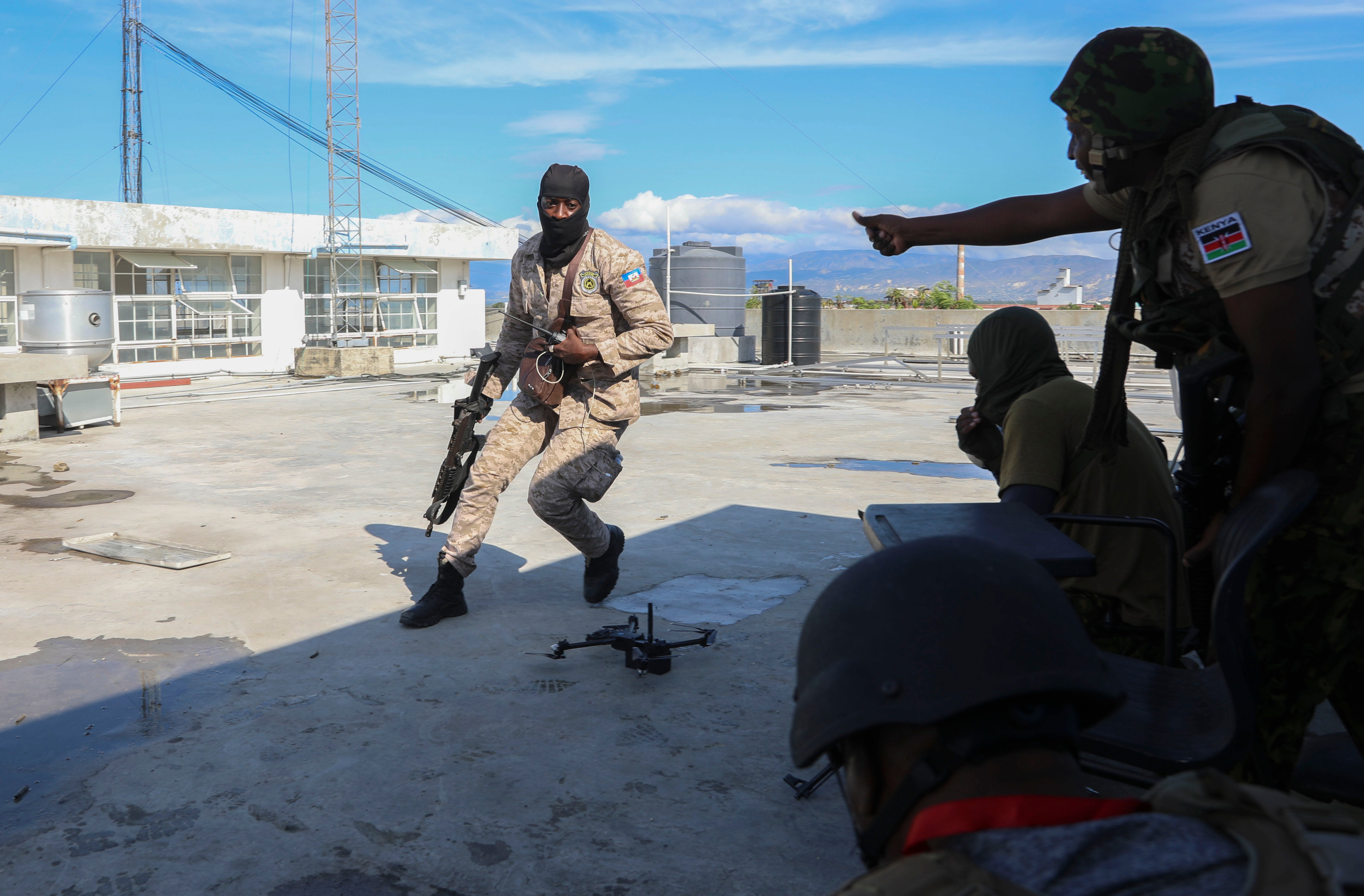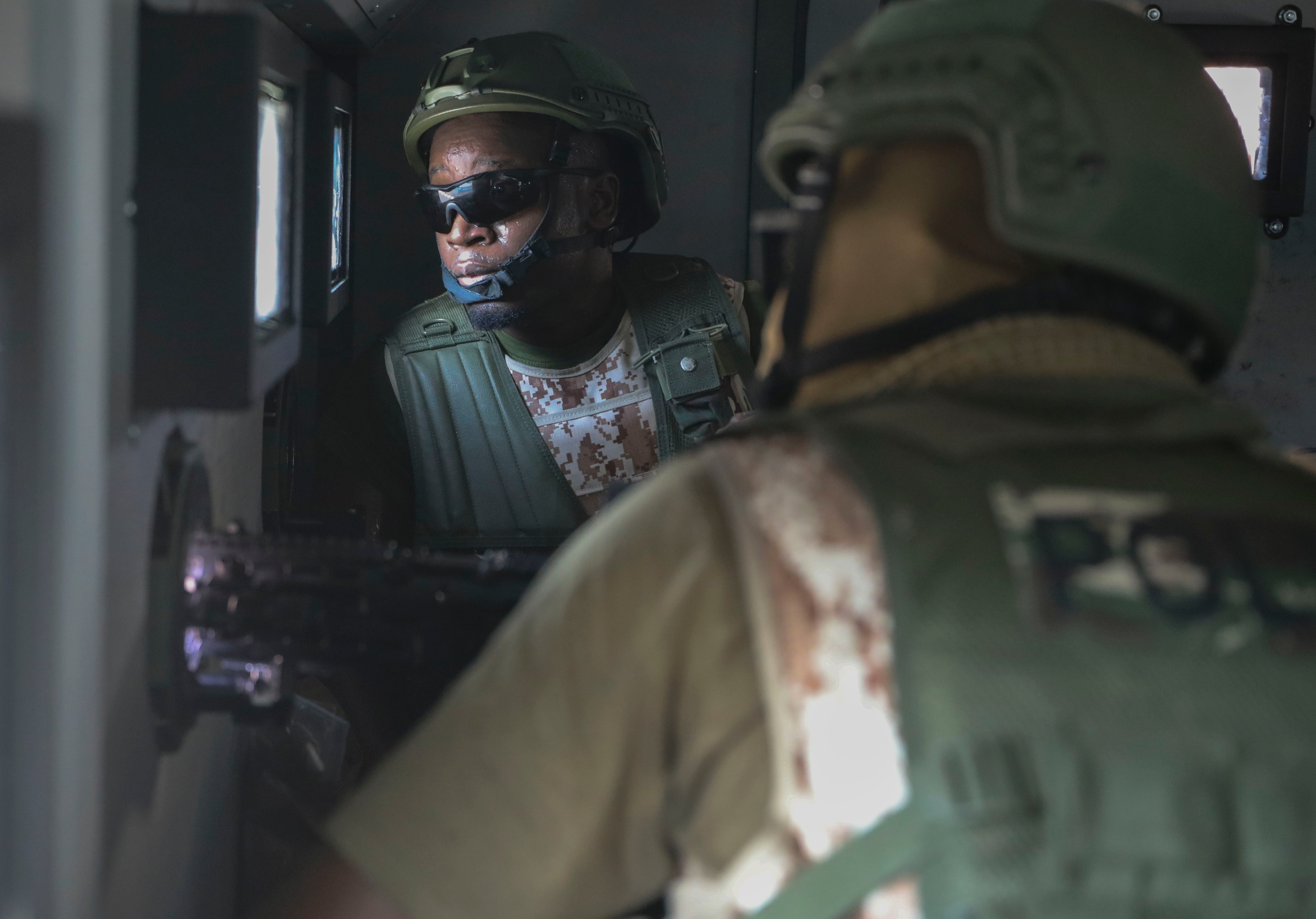Gang leader accused of massacring more than 100 old people in revenge attack
He is accused of massacring older people and religious leaders to avenge his son’s death

A gang leader in Haiti has been accused of massacring roughly 180 elderly people over the weekend in a bizarre revenge attack.
The killings in the Cite Soleil area were ordered by a gang leader who suspected his child had been made ill using witchcraft, Haiti‘s prime minister’s office said on Monday.
He is accused of massacring older people and Vodou religious leaders in his community to avenge his son's death.
Reports on the number of dead in Port-au-Prince can vary wildly in a country where such killings often occur in gang-controlled, largely inaccessible areas.
Haiti’s government in a statement Monday acknowledged the massacre, saying over 100 were killed, and promised to bring to justice those responsible for “this unspeakable carnage.”
Volker Türk, the U.N. high commissioner for human rights, told journalists on Monday that at least 184 people were killed by a powerful gang leader. It wasn’t clear where his office had obtained that number.
Haitian watchdogs also estimated more than 100 were killed, at times citing community residents.
The Cooperative for Peace and Development, a local rights group, said in a statement Sunday its monitoring unit found that around 20 older people were killed. But it noted that unidentified residents in the community controlled by gang leader Micanor Altès, also known as Monel Felix and Wa Mikanò, claimed there were more than 100 victims.

The National Human Rights Defense Network said the massacre occurred because the gang leader’s child was severely ill, prompting him to seek advice from a Vodou priest. After his son died, he accused older people in the community “of practicing witchcraft and harming the child.”
They said at least 110 people were killed between Friday and Saturday. The murky information was a worrying sign in a country in the grip of widespread gang violence.
“The fact that we have so many doubts about what happened days after the massacre is a signal that clearly indicates the level of control (gangs) have on the population,” said Diego Da Rin, an analyst with the International Crisis Group.
The accused gang leader controls the coastal communities of Wharf Jérémie, La Saline and Fort Dimanche and was known for robbery, extortion and hijacking of goods and trucks, according to a U.N. report earlier this year.
“Micanor was not known for being a brutal leader,” Da Rin said. “Not until now.”
The Cooperative for Peace and Development said that according to information circulating in the community, Micanor accused people in the neighborhood for causing his son’s illness.
“He decided to cruelly punish all elderly people and (Vodou) practitioners who, in his imagination, would be capable of casting a bad spell on his son,” the group said.
It said gunmen rounded up well-known community leaders and took them to the gang leader’s stronghold, where they were executed. Also killed were motorcycle drivers who tried to save some victims.
The group also noted that there’s a ban on people leaving the community “in order to continue to identify (Vodou) practitioners and the elderly with the aim of carrying out the silent killing.”
Da Rin noted that usually killings in Haiti are documented and posted on social media, though they can be difficult to verify. “In this case, there was not even a message on WhatsApp or a video on TikTok, which is very unusual,” he said.

The Cooperative for Peace and Development said Micanor has previously targeted Vodou practitioners, killing a dozen older women and Vodou leaders “wrongly accused of witchcraft” in recent years.
It’s not unusual for Haitians to seek medical and other advice from Vodou priests known as “oungans.” The religion that mixes Catholicism with animist beliefs was at the root of the revolution that led Haiti to become the world’s first free Black republic in 1804.
The massacre in Port-au-Prince comes two months after over 70 people were killed in the central town of Pont-Sondé, where gangs are vying to control more territory.
Such killings have overwhelmed Haiti’s National Police and a U.N.-backed mission led by Kenyan police that lacks funds and personnel, with the U.S. and other countries pushing for a U.N. peacekeeping mission.